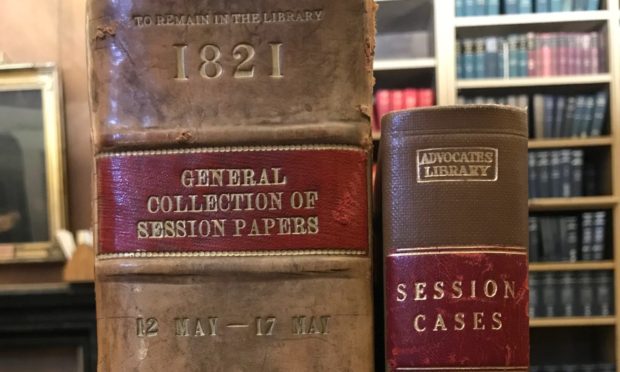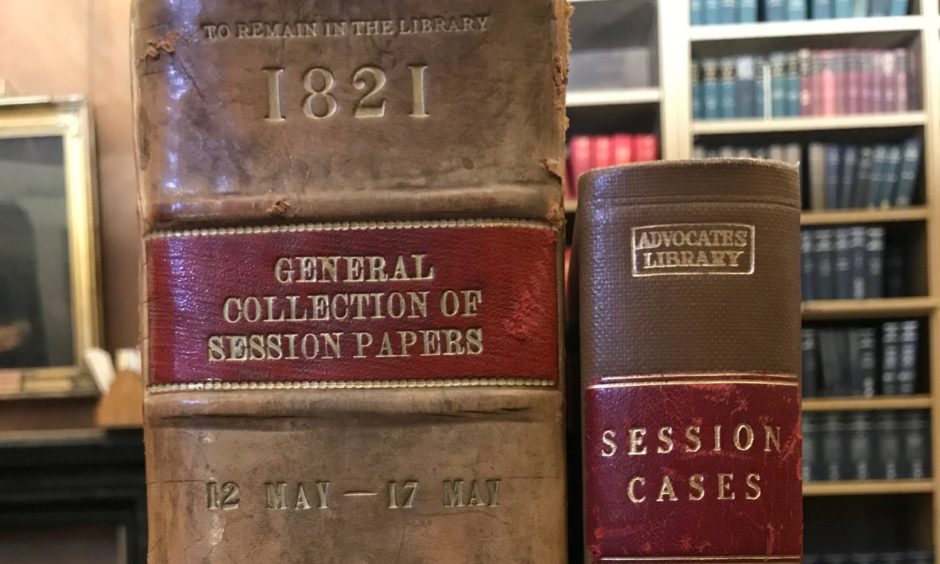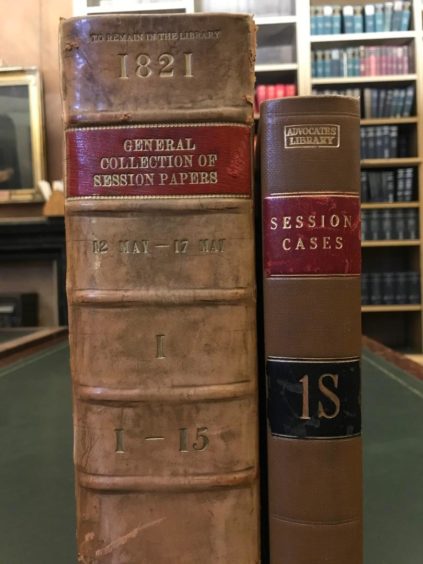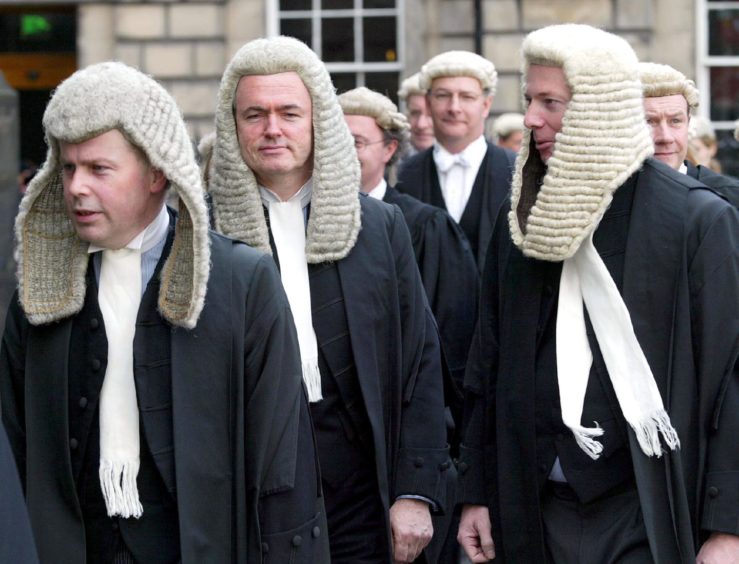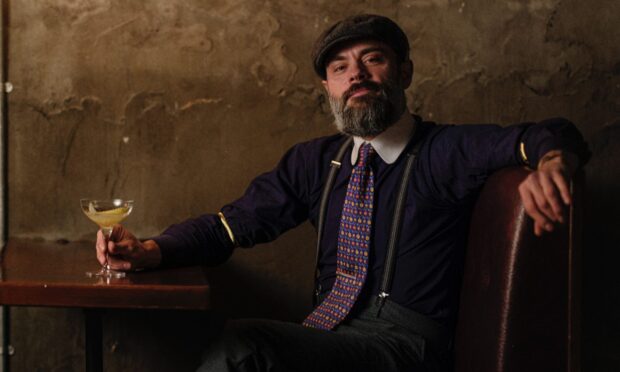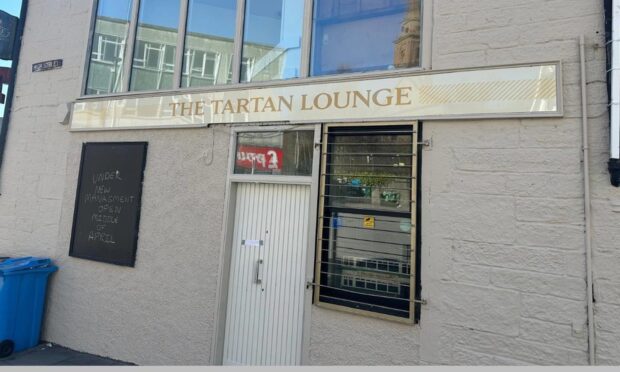The historic significance of a landmark court case involving a Dundee clergyman’s battle over money is being celebrated as the longest running series of law reports in the UK and Commonwealth marks its bicentenary. Michael Alexander reports.
They are two of the most talked about cases in Scottish legal history which are regularly cited in court decisions worldwide to this day.
In November 1930, the Second Division of the Inner House of the Court of Session heard an appeal by a lady who was averred to have consumed “snail-tainted ginger beer” in the Wellmeadow Café in Paisley.
A few months earlier in July 1930, a full bench of the High Court of Justiciary heard an appeal against conviction in relation to a series of sexual assaults against female employees in a “drapery establishment” at 186 Argyle Street, Glasgow.
More than 90 years on, the cases of Donoghue v Stevenson and Moorov v HMA have been voted the top two Session Cases in a poll by the Scottish Council of Law Reporting (SCLR) to mark the bicentenary of the UK’s oldest law reports.
However, it’s a landmark court case involving a Dundee church and a battle over money, which was the first case covered in the Session Cases launched on May 12, 1821.
Why was the Dundee case so significant?
Two hundred years ago, the Rev William Strang successfully pursued a Mr McLaren – a man tasked with ensuring he was paid – amid a row over a shortfall in funds at the city church where he preached.
This ultimately triggered a bankruptcy case which made its way to the Court of Session, where it was suggested that the man being pursued tried to avoid paying monies due to the minister by effectively passing his financial responsibilities to his nephew – William McIntosh – and creating a list of other sham creditors.
While colour from the proceedings is sketchy, experts say the resulting ruling holds significant importance in Scots law.
However, not only did its findings – in favour of the Rev Strang – set precedence in how judges viewed cases of bankruptcy, their publication was historic.
Strang v McIntosh was the first case covered in the Session Cases, believed to be the world’s second longest-running series of law reports.
First published featuring a summary of the Dundee case on May 12, 1821, only The United States Reports of the US Supreme Court has been in publication longer.
The Session Cases are a collection of reports – each written by practicing lawyers – profiling some of Scotland’s most significant legal decisions, including the so-called Paisley Snail to the Keatings case over whether Scotland could hold a second independence referendum without Westminster’s consent.

For two centuries now, they have featured all key decisions from the Court of Session, as well as those on Scottish appeals to the House of Lords, the Privy Council and the Supreme Court of the United Kingdom.
Since 2016, they include decisions of the Sheriff Appeal Court in civil and criminal cases.
That work is overseen by the Scottish Council of Law Reporting (SCLR), a charity which promotes the best practice of Scots law.
‘Minister of the Gospel in Dundee’
And it began with the case of the Dundee minister determined to secure what was owed to him.
Research by SCLR trustees Emma McLarty and Stephen O’Rourke QC for the charity’s bicentenary has found that it involved the personal bankruptcy of a Mr McLaren, a parishioner tasked with arranging payment of his minister’s stipend.
The petitioner was the Reverend William Strang, described as a ‘Minister of the Gospel in Dundee’.
The trustees wrote: “It appears that Mr McLaren had meddled with the funds and, at a full meeting of the congregation, refused to state what the shortfall actually was.
“The Reverend Strang was left with no choice but to raise an action for payment against McLaren and obtained a decree from the court confirming his right to payment. On the strength of that court decree, the Reverend Strang then took steps to seize McLaren’s possessions in order to sell them.”
In a step which the courts considered an attempt to defeat the Rev Strang’s claim, McLaren had signed a bill in favour of his nephew, a Mr William McIntosh, who became the respondent in the Court of Session hearing.
SCLR’s research found: “This bill recognised that McLaren owed a list of other creditors a total of £584, 8 shillings and 5½ pence, and the nephew McLaren became their trustee. However, there was considerable suspicion the creditors were a sham.
“At first instance, the sheriff decided the list of other creditors ranked alongside with the Rev Strang’s claim. Strang appealed that decision and the case was heard before the First Division of the Court of Session, Lord President Hope in the chair.
“The court found in favour of the Rev Strang and that ‘the bill [in favour of McIntosh], though intended for the benefit of all the other creditors, was objectionable as a title of competition against Strang.”
Setting a legal precedent
The legal importance of the case was the precedent it might have set had the ruling gone against the minister.
“If the plea of [McIntosh succeeds] a very considerable alteration will take place upon our law, and debtors will hereafter have it in their power to defeat the diligence of particular creditors by acting collusively with other real or pretended creditors,” the court was told.
The case became authority in support of what is legally known as challengeable alienations made by a debtor – attempts to put money beyond the reach of those to whom it is owed. It has since been cited in key documents in that field of law.
The church involved is not named in the Session Cases summary of the proceedings. However, it was reported by the Caledonian Mercury that he had been appointed to the second Relief Congregation, Seagate, Dundee in 1815.
By the time that his death was reported by the same newspaper in 1834, he was said to have moved to Edinburgh first to a church at Carruber’s Close and then Roxburgh Terrace (now Drummond Street).
Significance in Scottish legal life
Anthony Kinahan, of Blairgowrie, Perthshire, is secretary of the SCLR, supporting the trustees who oversee the charity and its reporting with their work.
He said: “While natural curiosity means that we would like to know more about the characters involved in this first case, its significance in Scottish legal life should not be overlooked.
“Scotland’s Session Cases are believed to be the longest running series of law reports in the UK and Commonwealth. They are held in the highest of regard across the world as an authority on the impact of major legal decisions.
“It all started with this most remarkable sounding of cases from Dundee and has gone on to include those of real constitutional importance.”
The purpose of law reporting is to provide a record of judicial decisions in cases heard in the courts, in order that the legal principles identified in a court opinion can be accessed and understood by the reader and any legal principles or rules in that decision be applied as authority to support legal argument in subsequent cases.
That purpose remains today as it was in 1821 when Session Cases began its publication.
Many of the reporters who have contributed to the cases have gone on to hold high legal offices, including Lady Paton and Lord Ericht among today’s senior Scottish judges.
Its current editor is Emma Toner, a Glasgow-based lawyer who became the first woman to hold the role when she was appointed in February 2020.
Other landmark cases
Mr Kinahan said the Donoghue v Stevenson case, which topped the recent poll, was a “really important case” and is one of the first judgments law students learn about.
It laid the foundation for the modern law of negligence and established the principles of the duty of care.
Also known as the “Paisley Snail” or “Snail In the Bottle” case, the case involved Mrs May Donoghue drinking a bottle of ginger beer in a café in Paisley.
Unknown to her or anybody else, a decomposed snail was in the bottle. She fell ill, and subsequently sued the ginger beer manufacturer, Mr Stevenson.
The House of Lords held that the manufacturer owed a duty of care to her, which was breached, because it was reasonably foreseeable that failure to ensure the product’s safety would lead to harm to consumers.
Another notable case was the Moorov doctrine.
Centred upon the Glasgow draper in the 1930s who had a habit of putting his hand up his female staff’s skirts, the rule holds that the evidence of one witness can corroborate the evidence of another in certain situations if the Crown can prove that the accused’s offending was part of a course of conduct, systematically pursued.
“That is still a doctrine that’s still being applied today and resonates with the whole #MeToo movement,” adds Mr Kinahan.
“So these cases may be back in the 1930s, but they are still being used, applied, developed by lawyers today.”
